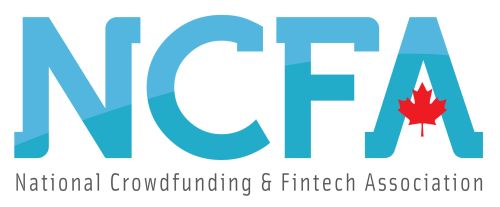Guest Post | Nov 25, 2022

Image: Pexels/Christina Morillo
There has been a change in the corporate world regarding the necessity to protect assets during the last few years. The definition of what must be safeguarded and to what extent has become more difficult. Only 15 years ago, most businesses focused on safeguarding assets as they were the most valuable ones. Data are typically at the top of the list of assets that businesses must now include in their inventory.
In addition to branding, connections, non-revenue rights, and intellectual property, your data is a form of intangible asset that you own. Let’s take a look at how to protect your data in this data room review.
All digital papers are kept in electronic format in a virtual data room. It lessens the amount of physical paperwork produced by firms and aids in protecting their intellectual assets. To maintain track of commercial transactions, a lot of businesses use VDRs. They will also be beneficial for asset management and fundraising.
The best virtual data room providers can stop files from being downloaded. They safeguard each file present in the data room.
What Exactly Is a Business Data Asset?
A particular kind of intangible asset made out of data is known as an enterprise data asset. Data is gathered or purchased with the intention of making money for the business, usually after it has been transformed into a different kind of data.
Although the terms “data protection” and “data privacy” are sometimes used synonymously, there is a significant distinction between the two. While data protection offers the tools and regulations to actually limit access to the data, data privacy specifies who has access to the data. Companies are required to take steps to protect sensitive user data, and compliance requirements help to ensure that users’ privacy requests are honored by businesses.
The upkeep of a company’s data assets aids in decision-making, customer service, and the creation of new revenue streams. Data about numerous transactions, events, and information is gathered and stored by organizations. Typically, most businesses save information about the preferences, social media use, finances, and other aspects of their clients. Organizations are able to better serve their customers and maintain their competitiveness in the market thanks to the management and refinement of the information that has been gathered.
Businesses can streamline the due diligence process with the help of virtual data rooms. Document delivery and review processes can be sped up by centrally storing documents in the cloud. Additionally, the best data room providers can help businesses organize their function flows and develop breakthrough ideas.
What Are the Principles of Data Protection?
Data protection guidelines aid in preserving data and ensuring its accessibility at all times. It includes adopting elements of data management and data availability and covers operational data backup and business development.
The following are significant data management factors related to data protection:
- Data availability allows users to access and use the information they need to conduct business, even if it is lost or corrupted.
- Automating the transfer of crucial data between offline and online storage is part of data lifecycle management.
- The valuation, categorization, and protection of information assets from a variety of threats, such as facility disruptions, application and user errors, equipment failure, malware infections, and virus attacks, are all part of information lifecycle management.
Moreover, the majority of data room providers offer a diverse set of functionality based on the particular use cases for which their data rooms are designed. That is why it is important to make a data room comparison before working with a certain provider.
How to Manage Data Assets?
Some strategies in businesses can use efficiently for managing their data assets include the ones listed below:
- Decrease data costs. There are increased costs associated with data management since many firms have a tendency to store a lot of data that is rarely used. Additionally, the expense of storing, safeguarding, and archiving all of this company-wide data is higher. By erasing data that is no longer needed, a corporation should try to lower data management costs.
- Derive greater value from current data. Find new ways to extract value from your data room software to help your business manage your data assets more efficiently. For instance, a business should reassess the value obtained from current data and decide whether there are any additional methods to use the data to increase its value. In order to generate additional revenue, it might potentially think about taking actions like selling the data to third parties.
- Data Security. To guarantee data integrity, proper data storage and security are essential. A business should keep a list of all the data they possess, along with a description of the data. The description should state the location of the data’s storage, its creation date, and its intended purpose.
How Does the VDR Work?
Particularly important in an organizational transaction are the protection and control of all documents. Within the property management process, the permanent electronic data room ensures secure long-term storage of business-critical data.
Cooperation is continually successful due to the central management of some parties, including owners, partners in the organization, and managers of the assets and properties. It reduces risks, increases openness, and ensures superior quality. The data is kept secure, so processes for upcoming transactions can be completed fast. The following fields successfully employ secure online data room software today:
- M&A
- Real estate investment
- Asset operations
- Committee communication
- Venture capital
- IPOs
- Document management
- Groundwork & Expansion.
Data room review enables businesses to control how their product sales, moreover, automates the process only for handling orders and assigning duties.
Data Protection in Business Assets
Data protection is the process of defending sensitive information against loss, tampering, or corruption. As data is created and stored at previously unheard-of rates, the significance of data protection grows.
See: Why You Should Review Your Data Governance and Privacy Risks in Canada
Five actions you should do to safeguard your data:
- Rank information assets according to business risks.
- Create data protection policies for your most valuable resources.
- Implement tools that enforce rules and alter end-user behavior.
- Implement data protection procedures in business operations.
- Informing corporate stakeholders about developing a security culture.
As a result, a key component of a data protection plan is making sure that data can be swiftly restored after any loss or damage. Other crucial aspects of data protection include guaranteeing data privacy and safeguarding data against compromise.
Conclusion
VDRs are well-known trustworthy organizations that help you deal with management, conformance, documentation needs, and much more. The rights of access are up to you. It gives authorized employees 24/7 access to the central software. Cross-company projects and ventures will be successfully processed without wasting money, time, or information. The data room services can be utilized later if necessary, and confidential company documents and emails will be archived without affecting the media.
 The National Crowdfunding & Fintech Association (NCFA Canada) is a financial innovation ecosystem that provides education, market intelligence, industry stewardship, networking and funding opportunities and services to thousands of community members and works closely with industry, government, partners and affiliates to create a vibrant and innovative fintech and funding industry in Canada. Decentralized and distributed, NCFA is engaged with global stakeholders and helps incubate projects and investment in fintech, alternative finance, crowdfunding, peer-to-peer finance, payments, digital assets and tokens, blockchain, cryptocurrency, regtech, and insurtech sectors. Join Canada’s Fintech & Funding Community today FREE! Or become a contributing member and get perks. For more information, please visit: www.ncfacanada.org
The National Crowdfunding & Fintech Association (NCFA Canada) is a financial innovation ecosystem that provides education, market intelligence, industry stewardship, networking and funding opportunities and services to thousands of community members and works closely with industry, government, partners and affiliates to create a vibrant and innovative fintech and funding industry in Canada. Decentralized and distributed, NCFA is engaged with global stakeholders and helps incubate projects and investment in fintech, alternative finance, crowdfunding, peer-to-peer finance, payments, digital assets and tokens, blockchain, cryptocurrency, regtech, and insurtech sectors. Join Canada’s Fintech & Funding Community today FREE! Or become a contributing member and get perks. For more information, please visit: www.ncfacanada.org
Related Posts
- Coinsmart. Europe’s Best Bitcoin and Crypto Exchange.Click Here
- Platoblockchain. Web3 Metaverse Intelligence. Knowledge Amplified. Access Here.
- Source: https://ncfacanada.org/how-to-evaluate-a-data-protection-companys-ability-to-protect-your-assets/